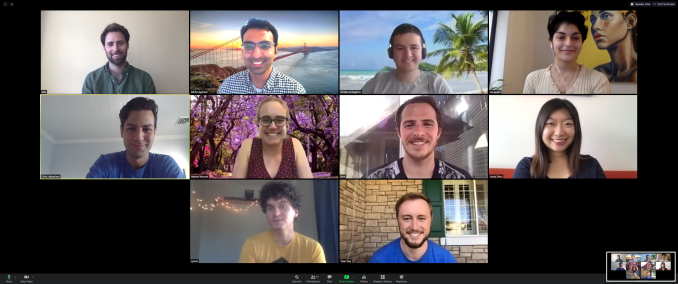Student loans are both a trillion-dollar debt category and also one of the most popular mini-verticals out there in fintech startup investing right now. There are dozens if not hundreds of companies in the space, and they all mostly do one of two things: either they help students think through their student loan options before choosing one (acting as a financial advisor to avoid mistakes) or they help students after they finish school figure out how to optimize their repayments or acquire loan forgiveness.
And so when I heard the pitch for LeverEdge, I was intrigued, because it really doesn’t fit either bucket.
Rather than approaching each user individually and trying to optimize their own financial decision independently, LeverEdge proposes helping students band together as a group and negotiate reduced student loan rates by essentially acting as a collective bargaining unit with banks.
For founders Chris Abkarians and Nikhil Agarwal, the idea came as they were entering Harvard Business School.
The two connected with some other HBS students through online new admit groups on Facebook and came up with the idea of trying to work together to lower their interest rates. The annual cost of attendance at HBS is $111,102 right now (annually!), so multiplied by two for the two-year MBA and you are looking at potentially massive cost savings if you can lower your interest rate.
There was just one problem: banks loved the idea, but no one knew how to actually negotiate interest rates at individual branches. As Agarwal explained, “So after work we would try to leave at a reasonable time to get to the bank branch before it closes and then pitch the branch manager on this. They were super excited, but then they’d be like, well, I don’t know what to do with this, I can’t change interest rates for you.”
So Abkarians started sending cold emails to bank CEOs with the same proposition, and also got a positive response, but was told that he would need much more volume to make a negotiated deal worthwhile for banks. At the time, the two only had 50 to 70 people working together, but they spread the option around more heavily with their classmates and students at other business schools and eventually got to 700 students with $26 million in loan volume over the next 10 days.
With that scale, the two were able to negotiate a competitive rate with a bank that saved each student an average of $15,000 in fees over the full life of their loans according to their calculations.
They did all this entirely virtually too. Abkarians and Agarwal eventually met for the first time in person at Harvard in the fall, still with a whirl of excitement over what had transpired over the summer. They started asking for feedback from their users about the process, and Agarwal said:
The number one negative feedback we got was you closed the deal on July 26, [but] I couldn’t use it because my tuition due date was before that day. And then every other piece of feedback — even for this haphazardly run group — was incredibly amazing. And that really convinced us [… that] we owe it to our members and really the future generation of classes to make this a thing.
LeverEdge is taking that one-off experience and systemizing it for more students in more contexts. The startup, which was officially founded in May 2018, targets the private student loan market outside of federal programs typical for most undergrads. That loan market typically has higher (and sometimes dramatically higher) interest rates than traditional federal student loans, and lenders also has the flexibility to negotiate interest rates unlike with federal loans.
Today, LeverEdge has more than 15,000 students on its platform and has financed $100 million in student loans according to the startup. It also raised a $2.5 million seed round led by NFX along with Global Founders Capital and founders from fintech companies Earnest and SoFi.
The company spends most of the year aggregating students for the next school year, and then “we spend around two months in this auction process between different lenders,” Abkarians said. The company currently has nine employees, and “our staff is focused on partnership building,” he said.

The new version of a startup team photo. LeverEdge Team, photo via LeverEdge
As for business model, LeverEdge takes a pre-set referral fee from lenders upfront for each tranche of loans that they negotiate between students and the lender. That fee is “non-negotiable” according to Agarwal, and all lenders participating in the auction agree to pay it if they have the winning bid. The company varies the fee based on the loans that are grouped together (Agarwal said that, for example, refinance loans have a lower referral fee than other student loans). He believes this approach ensures that LeverEdge always has the right incentives to get the best prices for students.
Importantly, no student is obligated to take the final loan as negotiated by LeverEdge. But, if the company is doing its job, then the offered loan should be competitive with any alternative loan on the market. “We still encourage people to compare it against other things and if they find anything that is better than what we’ve found to please just let us know. No one has yet,“ said Abkarians.
The big question now is what will happen this coming school year given COVID-19. On one hand, students may avoid campuses knowing that schools are moving heavily toward virtual classes due to social distancing policies. On the other hand, economic recessions and greater concerns around costs may lead more students to seek out cheaper student financing options: exactly the customers that LeverEdge wants to find.
Overall, it’s an interesting play on the student loan space and one of the more interesting fintech startups I have seen in some time.
Comments
Post a Comment